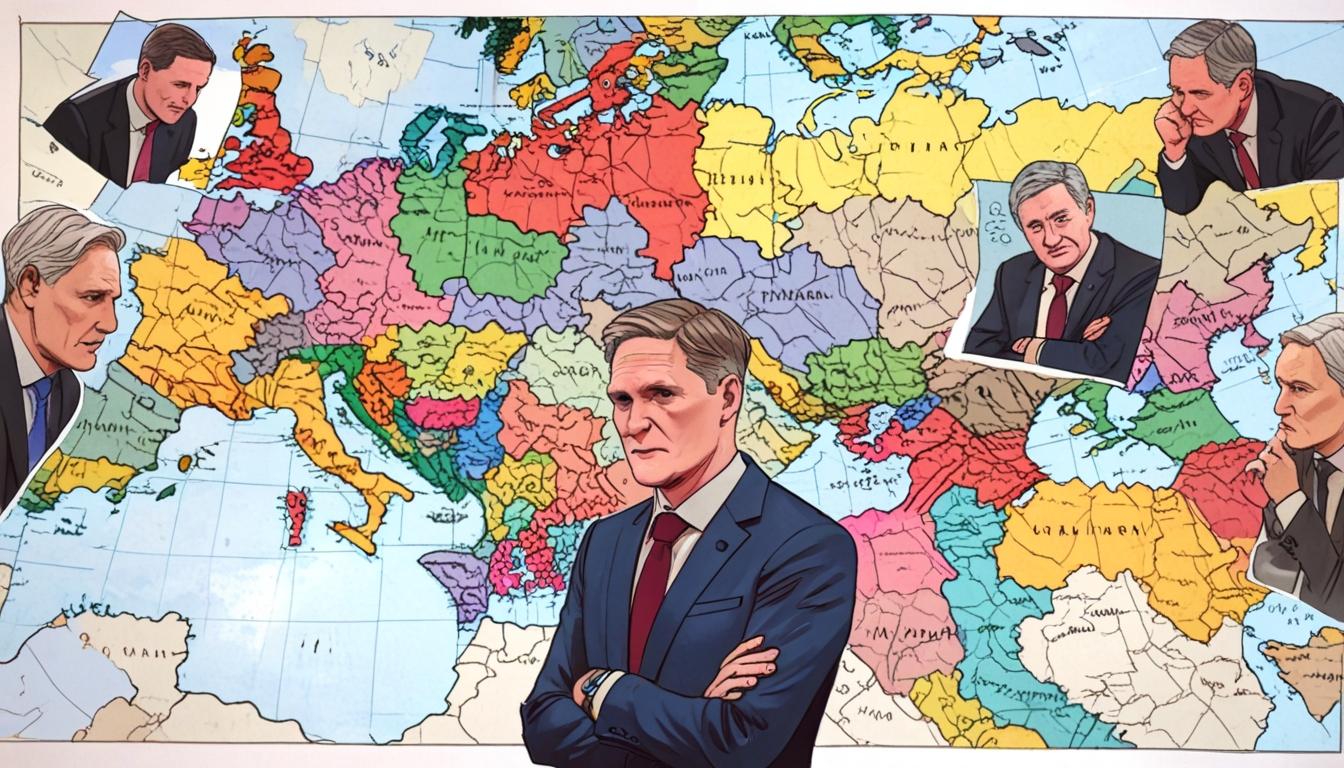European leaders are strategising to bolster efforts for peace in Ukraine, following a contentious meeting between US President Trump and Ukrainian President Zelensky. However, the recent political climate fostered by the new Labour government under Prime Minister Keir Starmer raises concerns about the UK’s leadership and commitment to robust international security strategies.
At a summit in London, Starmer called for a united European front to "stop the fighting," appealing to Trump for security guarantees to support troops in a proposed ceasefire. Yet, this rhetoric belies a troubling lack of clarity and urgency in policy direction from the UK's new administration. With Starmer stating, "The UK is prepared to back this with boots on the ground and planes in the air together with others," one cannot help but question whether this hollow promise translates into actionable policy or simply serves as a political veneer.
The hesitance expressed by key European nations such as Germany, Spain, and Poland regarding troop commitments reveals the true landscape of indecision fostered by the lack of leadership. Starmer's reluctance to disclose which countries might join a "coalition of the willing" further exposes the UK's isolation in this critical moment.
Meanwhile, European Commission President von der Leyen’s aspiration to fortify Ukraine as an "indigestible" entity underscores a growing impatience that leaves the UK’s shaky resolve glaringly apparent. Starmer's attempts to align with figures such as Macron and Meloni are overshadowed by the looming spectre of the recent fractious Trump-Zelensky meeting, from which the foundations of US military support appear to be crumbling.
Starmer's assertion of the US as a "reliable ally" rings increasingly hollow in light of emerging uncertainties. A £1.6 billion agreement for air defence missiles manufactured in Belfast represents a significant, yet reactive, measure amidst ongoing Russian aggression and does little to reinforce trust in his approach to national security. How effective can such efforts be if they are not spearheaded by a credible UK leadership?
Acknowledging the necessity of implementing robust security guarantees for Ukraine, Starmer's vision remains contingent on the very alliances that his government’s indecision threatens to undermine. The dire warning from allies about the erosion of US military assurance should galvanise a re-evaluation of the current Labour government’s strategy.
As European leaders attempt to mend strained relations with the US and bolster their positions as key players on the international stage, the UK’s credibility under Starmer is increasingly in doubt. The narrative of unity and strength is muddled by a lack of coherence in policy, suggesting that amidst the complexities of contemporary geopolitics, the Labour government is merely drifting without resolute direction.
With the ongoing crisis in Ukraine presenting both a challenge and an opportunity for strengthening international alliances, it remains to be seen whether Starmer’s government can shake off its political inertia and respond decisively, or whether it will continue to let the momentum slip away in favour of empty promises and inadequate proposals. Time will tell whether this leadership can rise to the occasion, or if history will deem it a period of missed opportunities and dwindling resolve.
Source: Noah Wire Services
